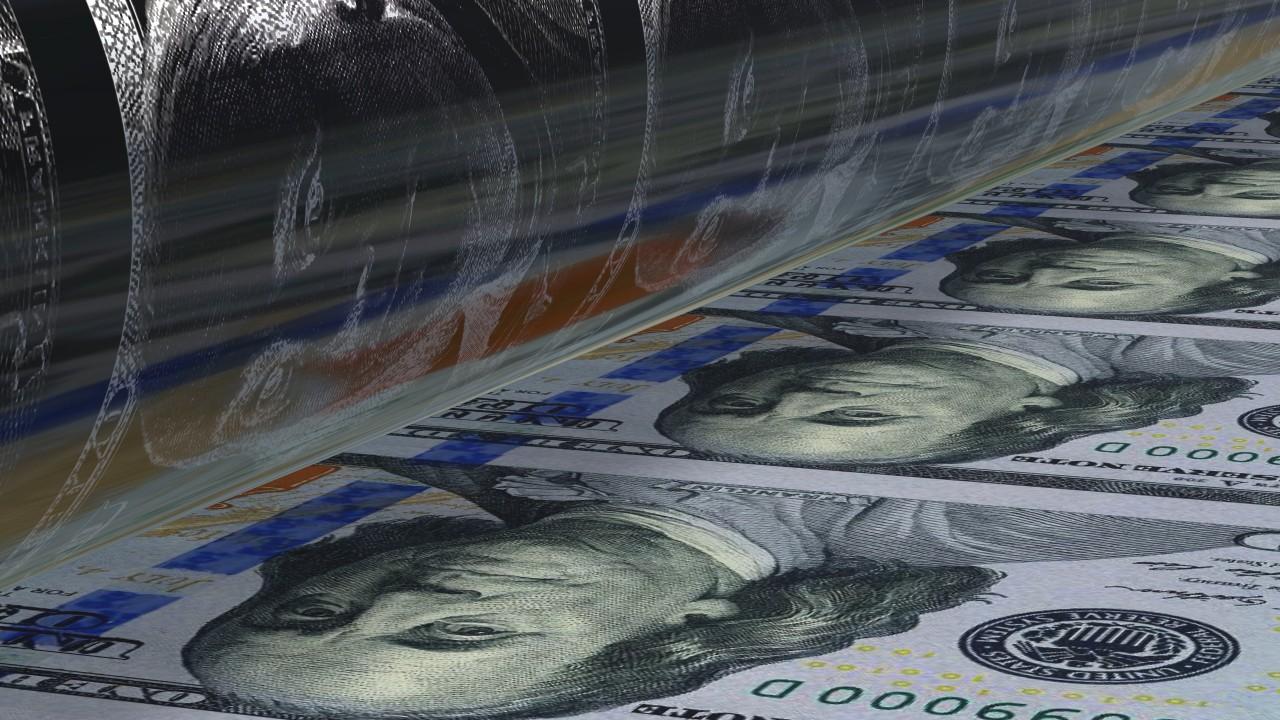On Friday, Aug 5, 2011, Standard and Poor’s lowered America’s AAA credit rating. The S&P 500 index fell 7% in the subsequent session to 1120. The VIX index surged from 22.5 to 48.3. Even though S&P had downgraded US creditworthiness, 10-year treasury yields fell 22bps to 2.34% as investors rushed to “safety.” The Swiss Franc gained 2%. Gold jumped 3% to $1,717. Bitcoin fell from $12.56 to $12.00. And while market pundits spent this weekend looking back in time, to predict Monday’s market moves, I kind of just marveled at how the price of assets with limited supply has risen through time. The magic of money illusion.
Overall: “Over more than a decade, US federal debt has risen sharply due to continuous fiscal deficits,” wrote Moody’s on Friday, after the market close. “During that time, federal spending has increased while tax cuts have reduced government revenues. As deficits and debt have grown, and interest rates have risen, interest payments on government debt have increased markedly,” continued Moody’s, lowering the US credit rating by one notch to Aa1. “Without adjustments to taxation and spending, we expect budget flexibility to remain limited, with mandatory spending, including interest expense, projected to rise to around 78% of total spending by 2035 from about 73% in 2024.” The Republican’s had just released their 1,116-page ‘One Big Beautiful Bill Act’, which naturally accelerated America’s upwardly sloping trajectory for both deficits and debt. “If the 2017 Tax Cuts and Jobs Act is extended, which is our base case, it will add around $4 trillion to the federal fiscal primary (excluding interest payments) deficit over the next decade. As a result, we expect federal deficits to widen, reaching nearly 9% of GDP by 2035, up from 6.4% in 2024, driven mainly by increased interest payments on debt, rising entitlement spending, and relatively low revenue generation.” Making America Great Again. “We anticipate that the federal debt burden will rise to about 134% of GDP by 2035, compared to 98% in 2024. Despite high demand for US Treasury assets, higher Treasury yields since 2021 have contributed to a decline in debt affordability,” wrote Moody’s, painting a picture of a chronically deterioration in the finances of the world’s most important safe haven. “Federal interest payments are likely to absorb around 30% of revenue by 2035, up from about 18% in 2024 and 9% in 2021.” And of course, investors have by now come to terms with the fact that the US will expand its debt at an absurdly rapid rate until markets force austerity on it. But no one is quite sure when that will happen, only that when it does there will be almost nowhere to hide, and hell to pay.
Week-in-Review: Mon: China and US agree to slash tariffs; Bessent claims “substantial progress”. Russia-Ukraine peace talks start in Turkey without Putin and Trump. Trump vows to lower US drug prices by up to 80%. Saudi Arabia launches AI venture HumAIn ahead of Trump visit. Hamas releases Israeli American hostage. Modi says India has “only suspended” military operation. S&P +3.3%. Tue: Trump visits Saudi Arabia, lauds enduring ‘bonds’ with the kingdom as White House hails pacts worth about $600bn. Trump proposes pharma price cuts and tax increases for the rich. US put sanctions on companies alleged to be shipping Iranian oil to China. China’s Xi backs Panama against US over canal, offers greater cooperation with Latin America. China criticizes UK trade deal with US, claiming it targets China. Trump administration terminates a further $450mn in grants to Harvard. US CPI 2.3% (2.4%e), NFIB small bus. idx 95.8 (95e), UK unemp. 4.5% as exp, India CPI 3.16% (3.20%e), S&P +0.7%. Wed: Trump holds warm meeting with ‘tough guy’ Syrian leader and promises to lift sanctions against the country. Qatar orders up to 210 Boeing jets during Trump visit. Macron open to stationing French nuclear weapons in other European nations. Chinese exports to Vietnam surge as producers reroute shipments to avoid US tariffs. Foreign states to be allowed to take 15% stake in UK newspapers. US warns against using Huawei chips ‘anywhere in the world’. China’s Baidu in talks to launch robotaxis in Europe. Germany CPI 2.1% as exp, China M2 8.0% (7.2%e), Australia Unemp. rate 4.1% as exp, Argentina Nat CPI 47.30% (47.95%e), S&P +0.1%. Thur: Putin to skip Russia-Ukraine peace talks in Turkey. Trump says no deal on Ukraine until he meets Putin and US is close to a nuclear deal with Iran. Trump lashes out at Apple over plan to ship US iPhones from India. Germany backs Trump goal for Nato to spend 5% of GDP on defense. Nato former officials accused of taking bribes from defense companies to pass intelligence about procurement contracts. Walmart to raise prices despite US-China trade deal. US Jobless claims 229k (228k e) / cont. claims 1881k (1890k e), US Empire mfg. -9.2 (8.0e), UK GDP 1.3% (1.2%e), France CPI 0.8% as exp, Poland GDP 3.2% as exp, Eurozone GDP 1.2% as exp, Brazil Ret sales -1.0% (-0.7%e), Canada Housing starts 278.6k (226.2k e), S&P +0.4%. Fri: US and EU break impasse to enable tariff talks. US to add Chinese chipmakers to export blacklist. Trump to set tariff rates for scores of countries in 2 to 3 weeks. Zelensky joins the leaders of France, Germany, the UK and Poland on a call with Trump. Japan to hold out for better trade deal with US. Israel escalates Gaza strikes and launches new round of strikes against Houthis in Yemen while ceasefire talks are taking place in Doha. Nvidia plans Shanghai research center in new commitment to China. US Housing starts 1361k (1363k e), US Mich sent 50.8 (53.4e), Japan Q1 real GDP -0.2 (-0.1e), Russia GDP 1.4% (1.7%e) / CPI 10.23% (10.30%e), S&P +0.7%. Sat/Sun: Moody’s downgrades US credit rating one notch to Aa1. Trump/Zelensky/Putin agree to speak on Monday.
Weekly Close: S&P 500 +5.3% and VIX -4.66 at +17.24. Nikkei +0.7%, Shanghai +0.8%, Euro Stoxx +2.1%, Bovespa +2.0%, MSCI World +4.1%, MSCI Emerging +3.0%, Bitcoin +0.6%, and Ethereum +11.4%. USD rose +0.8% vs Euro, +0.6% vs Chile, +0.6% vs Sweden, +0.2% vs Canada, +0.2% vs Yen, +0.2% vs Turkey, +0.2% vs Brazil, +0.2% vs Sterling, +0.2% vs India, +0.1% vs Australia, and +0.1% vs Mexico. USD fell -1.7% vs Russia, -0.9% vs South Africa, -0.5% vs Indonesia, and -0.3% vs China. Gold -4.7%, Silver -1.7%, Oil +2.4%, Copper -1.3%, Iron Ore +5.5%, Corn -1.4%. 10yr Inflation Breakevens (EU +1bp at 1.79%, US +4bps at 2.36%, JP +4bps at 1.62%, and UK +4bps at 3.19%). 2yr Notes +11bps at 4.00% and 10yr Notes +10bps at 4.48%.
2025 Year-to-Date Equity Index Returns: Poland +39.4% priced in US dollars (+29.6% priced in zloty), Czech Republic +34.8% priced in US dollars (+24.5% in koruna), Hungary +33.9% in dollars (+22.4% in forint), Greece +32.2% (+22.8%), Chile +31.2% (+25%), Spain +30.6% (+21.3%), Austria +29.9% (+21.2%), Germany +28% (+19.4%), Italy +27.5% (+18.9%), Brazil +26% (+15.7%), Colombia +25.7% (+19.4%), Mexico +25.3% (+17.1%), Ireland +22.2% (+13.5%), Norway +21.9% (+11.4%), Portugal +20.3% (+11.7%), Euro Stoxx 50 +19.4% (+10.9%), Finland +18.8% (+10.8%), South Africa +18% (+12.9%), HK +15.7% (+16.4%), Sweden +15.4% (+2.5%), Korea +15.2% (+9.5%), France +15.1% (+6.9%), Switzerland +14.7% (+6.3%), Netherlands +14.1% (+5.9%), Israel +13.2% (+10.4%), UK +12.6% (+6.3%), Belgium +12.3% (+4.3%), Singapore +8.2% (+2.9%), Canada +8.1% (+5%), India +5.8% (+5.8%), Australia +5.8% (+2.3%), MSCI World +4.2% in dollars, Taiwan +3.2% (-5.2%), Philippines +2.7% (-1%), UAE +2.5% (+2.5%), New Zealand +2.4% (-2.5%), Japan +1.9% (-5.4%), China +1.7% (+0.5%), S&P 500 +1.3%, Vietnam +1% (+2.7%), Malaysia -0.3% (-4.3%), NASDAQ -0.5%, Indonesia -1.4% (+0.4%), Saudi Arabia -4.4% (-4.6%), Russell -5.2%, Turkey -10.5% (-1.6%), Denmark -11.4% (-17.3%), Thailand -12.6% (-14.6%), Argentina -17.8% (-8.5%).
Exceptionalism: “US Exceptionalism is part of an economic evolution that started well before Europe destroyed itself in WWII,” said the Chief Strategist of one of the Middle East’s mighty sovereign funds. “There are currently four key parts of America’s global economic and political power,” he continued, dismissing growing concerns that US dominance is going to fade anytime soon. “The first is its substantial productivity advantage over the rest of the world, and not just labor productivity (which is China’s advantage), but more importantly capital deepening.”
Exceptionalism II: “The second is stakeholder capitalism,” continued the Chief Strategist. “A key US differentiator (and Europe to some extent) is the role of management capitalism.” An economic/corporate structure where professional managers, rather than owners/founders control and run large businesses. “This has grown since WWII (it didn’t exist prior) and has driven the development of a substantial middle class whose economic fortune is tied directly to the company. Previously we just had labor and capital. Now we also have management capital.”
Exceptionalism III: “Third is government policy,” he said. “Since 1960 and especially since Reagan, The US has had a very pro-capitalist set of government policies that have spilled over into income tax policies, too.” Substantial cuts in high-end income taxation are an example. “The fourth and final part of US global economic and political power is American law and order. Related to government policy, there has been a strong and independent judiciary that supports property rights and clearly enforces them.” No great nation can endure without rule of law.
Exceptionalism IV: “US exceptionalism may have occurred without all four of these,” said the Chief Strategist. “But, with them all, it was robust. It created high levels of investment in universities that led to high output of cutting-edge research that then led to the ongoing attraction of the best talent who could then capture monopoly profits.” The monetization of US intellectual property was protected through the patent system. “A key underpinning to all this is, has been US antipathy to labor rights, and the drive to keep labor costs low. It has been so for many decades.”
Exceptionalism V: “However, this labor dynamic is critical to understanding why the Trump administration’s well-intentioned push to improve manufacturing will fail, he said. “Because US vested interests will insist on keeping labor markets cheap, capital markets lightly regulated, and capital flows fully unregulated,” he said. “The correct way to deal with the problems afflicting the rustbelt is to impose taxes on capital flows and provide targeted industrial policy support. But both are an anathema to the vested interests that drive politics and policy in DC.”
Exceptionalism VI: “So what could threaten US Exceptionalism?” he asked, not waiting for my answer. “A substantial tax on US capital flows, think 10%,” he said. “A reduction in policy supporting tech and healthcare monopolies.” Via stronger enforcement of anti-trust laws. “A total failure of US courts to impose a rigorous safety net around a difficult Trump administration,” he said. “Finally, a collapse in US productivity. This is the most likely of the four. But even then, it would have to be a significant and sustained fall in productivity. And I really don’t see it.”
Anecdote: Storms roll in fast here, angry squalls, then they’re gone, racing across the valley, dark, menacing, northward toward Yellowstone. High in the mountains, early spring’s grass is of the most vibrant green, the sweet but brief reward of a hard life, the eternal struggle. There was a time not so long ago when this land was owned by no one. Native Americans coming and going. And here we are, at property prices that defy belief. The race to trade pieces of paper for those assets in limited supply is most certainly underway. The Great Wealth Transfer from US Baby Boomers to their children is estimated to be $53-$68 trillion over the coming two decades, and $68-$84 trillion if you include transfers from the Silent Generation. Naturally, every generation has somewhat different priorities, preferences, tastes. So at least some portion of this wealth will shift from one place to another, from this asset to that. Investing is first and foremost an exercise in front-running flows; buying what others do not yet know they need, selling what others will soon tire of. Some like to hold their savings in safe assets, like government bonds. But what was once safe is quite clearly becoming risky. With government deficits utterly out of control, it is a near certainty that tomorrow’s interest will be paid in substantially devalued dollars. That is by no means the end of the world, the Tetons will still stand, defiant, but for those interested in preserving their buying power it means they must look for new shelters. Gold prices have begun to reflect the inevitability of the coming storm. Bitcoin too. And unlike gold which has a 22x higher market capitalization than Bitcoin, the young beneficiaries of the Great Wealth Transfer are more open to its upside potential than their parents who have missed its 858,900% gain since Standard & Poor’s first downgraded US debt in August 2011.
Good luck out there,
Eric Peters
Chief Investment Officer
One River Asset Management
Disclaimer: All characters and events contained herein are entirely fictional. Even those things that appear based on real people and actual events are products of the author’s imagination. Any similarity is merely coincidental. The numbers are unreliable. The statistics too. Consequently, this message does not contain any investment recommendation, advice, or solicitation of any sort for any product, fund or service. The views expressed are strictly those of the author, even if often times they are not actually views held by the author, or directly contradict those views genuinely held by the author. And the views may certainly differ from those of any firm or person that the author may advise, converse with, or otherwise be associated with. Lastly, any inappropriate language, innuendo or dark humor contained herein is not specifically intended to offend the reader. And besides, nothing could possibly be more offensive than the real-life actions of the inept policy makers, corrupt elected leaders and short, paranoid dictators who infest our little planet. Yet we suffer their indignities every day. Oh yeah, past performance is not indicative of future returns.





